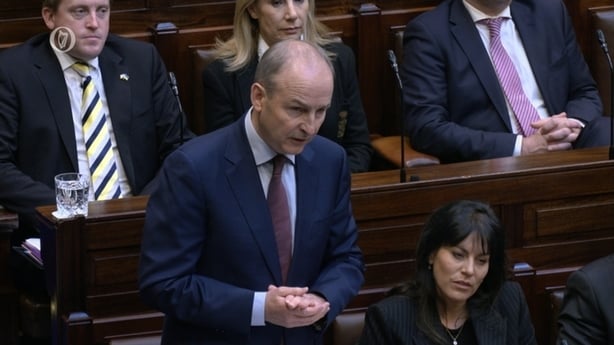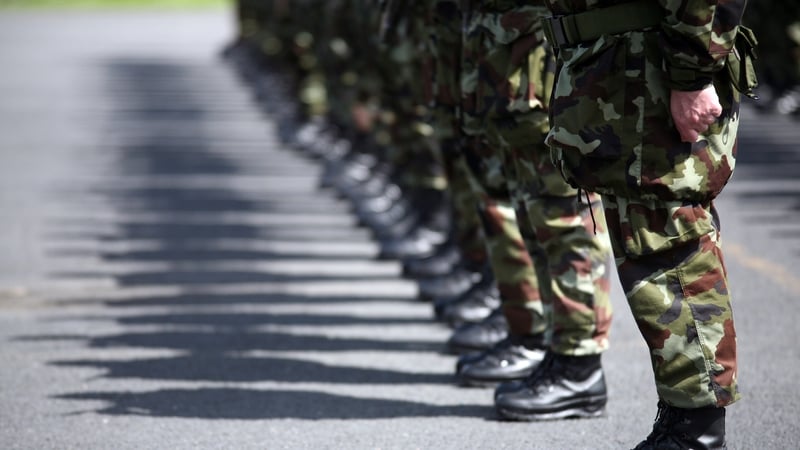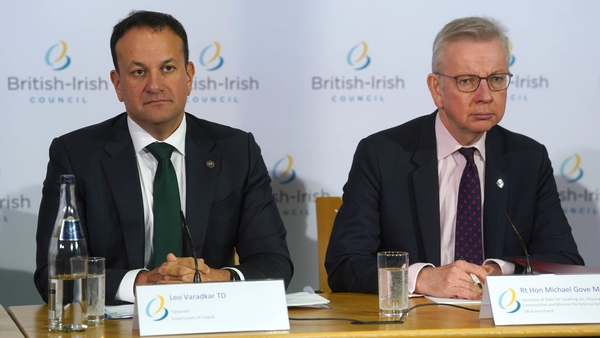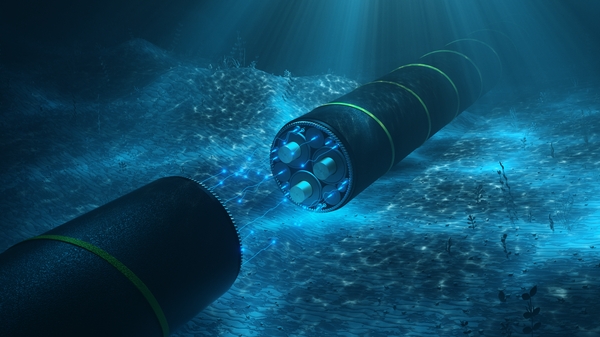The Tánaiste has denied claims by Sinn Féin that change in legislation to remove the Triple Lock mechanism, which governs the deployment of Irish troops in peace keeping missions abroad, erodes Ireland's neutrality.
Yesterday, Micheál Martin said that the Government was preparing legislation to change the protocols around the future deployment of the Defence Forces overseas.
Under the existing system a mission has to be sanctioned by the Dáil, the Government and the UN security council which includes Russia and China.
However, Mr Martin said that it now makes sense to amend existing legislation to allow the country respond to crisis situations with more agility.
The Government is examining the option of replacing the UN approval element of the Triple Lock with missions organised by a regional organisation recognised by the UN.
Tánaiste and Minister for Defence Micheál Martin told the Dáil yesterday that this could mean dispatching Defence Forces personnel to multilateral missions overseas "where these are organised by a regional organisation such as the European Union or African Union, or where the host country is requesting such support from the international community".
He said that while these proposals may not necessarily always include a role for the UN Security Council, they would remain fully consistent with the principles of the UN Charter and international law.
The Department of Defence is drawing up legislation to change the Triple Lock and this will be considered by the Government before being brought to the Oireachtas.

Sinn Féin's Pearse Doherty said that removing the Triple Lock would diminish Ireland's standing internationally, and should be put to a referendum.
"The current policy works and it has complete popular legitimacy, there’s no reason whatsoever to change it, such a change will impress no-one in Europe and it will contribute nothing to international peace," Mr Doherty told the Dáil.
"Instead of sniping at our neutrality, the Government should acknowledge what we have achieved because of it."
Mr Doherty said there are only 7,300 members of the Defence Forces, a figure he said was "a complete scandal".
"Under your watch ... more members of the Defence Forces are leaving each year rather than being recruited."
Mr Martin accused the Sinn Féin TD of "creating straw men all over the place" and spreading "active disinformation".
"There is no proposal and there will be no legislative proposal to come before this house to undermine our policy of military neutrality, we have made that crystal clear, we are not members of a military alliance there is no proposal to join NATO," Mr Martin said.
The Tánaiste said the Triple Lock "does not critically underpin our policy of military neutrality, it is essentially about the deployment of troops overseas".
"Why do I want to amend it? Because I do not believe that Russia, China or the United Kingdom, or for that matter the US or France, should dictate Irish foreign policy or when we do not deploy troops."

The Tánaiste said Sinn Féin "had a history of being soft on Russia," and said "we cannot allow Russia and China to dictate what we do".
He said the opposition should not act in "knee jerk way" to the proposal by the Government to change the Triple Lock.
"We have put into the constitution provision which prevents us joining a European defence pact," the Tánaiste said.
He was responding to Labour leader Ivana Bacik who said that the Triple Lock "does have a link with our neutrality".
She said the changes proposed by the Government were a "drift away from our military neutrality".
She added it was the answer to the wrong question to move away from the Triple Lock and that the Government's proposal amounted to "undermining" of the United Nations.
Independent TD and former Irish Army Ranger Cathal Berry said he would not regard the Triple Lock as a "component for Ireland's neutrality".
Mr Berry said the Triple Lock situation is unique to Ireland and no one is "asking us to have it".
"I think a balance could be struck so there can be circumstances with external checks and balances, but that could also provide the Government with additional autonomy to assist Irish citizens overseas where appropriate," he said.
What is the Triple Lock system?
We need your consent to load this YouTube contentWe use YouTube to manage extra content that can set cookies on your device and collect data about your activity. Please review their details and accept them to load the content.Manage Preferences
The phrase 'Triple Lock' refers to the three steps that have to be taken before more than 12 members of the Defence Forces can be sent abroad on any mission.
The first step is Government backing. That usually comes in the form of a Cabinet decision and all those decisions are taken by consensus.
The second step is a Dáil motion. Usually, the Government has a Dáil majority, so that’s fairly straightforward, but the debate itself can be hot and heavy.
The third step before any deployment is the backing of the UN Security Council. And it is this third step which is the focus of political discussion.
The coalition Government has argued that Russia, which has a permanent seat on the UN Security Council, can always veto any Irish deployment and that should not be the case.
Opposition parties are worried that if Ireland gets rid of the Triple Lock, then any Irish government could send troops abroad and that would be a dilution of Ireland’s neutrality.





